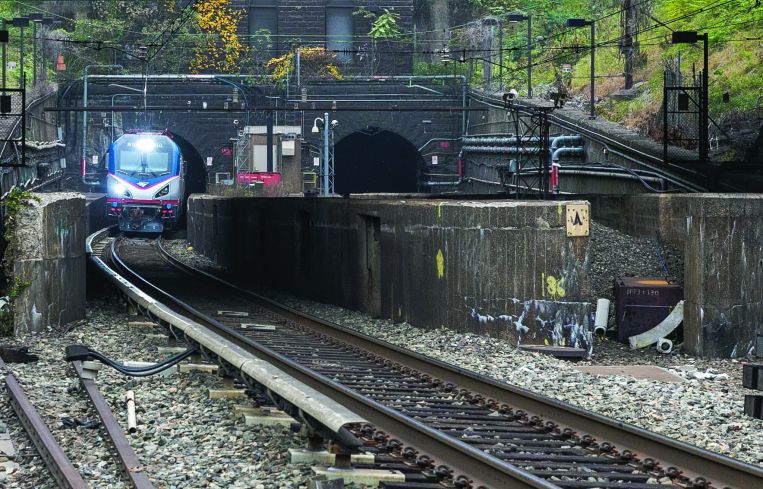Governors Hochul and Murphy Finalize Gateway Funding for Cross-Hudson Tunnels
By Rebecca Baird-Remba July 6, 2022 12:15 pm
reprints
After many years of negotiations, governors Kathy Hochul and Phil Murphy finalized the first phase of state funding to build new train tunnels beneath the Hudson River on Tuesday, signing an agreement to split costs 50-50 between New York and New Jersey.
The two states have committed $2.7 billion for the $14 billion first phase of the Gateway project via the Port Authority of New York and New Jersey. The first big piece of work will involve the replacement of the Portal North Bridge between Secaucus and Kearny, N.J., which the federal government is funding 60 percent and the states are splitting the remaining 40 percent of the cost, according to Hochul. Each state will pay $386.2 million in construction costs, for a total of $772.4 million in shared costs.
The Federal Transit Administration is also expected to shoulder 60 percent of the costs to dig the new subterranean tunnels, which will replace the century-old Hudson River tubes that flooded during Hurricane Sandy.
“We are establishing the framework to get this project over the finish line and are making good on our promise to modernize the state’s transportation infrastructure and create a mass transit system worthy of New Yorkers,” Hochul said in a statement.
Work on the 111-year-old Portal North Bridge is expected to start immediately, while construction of the Hudson River tunnels is scheduled to begin in 2023.
Murphy said, “as we proceed with construction of a new tunnel under the Hudson River, we advance one step closer toward a New Jersey that is better connected and better positioned to reap the full economic benefits of our status as a regional crossroads.”
The agreement between Hochul and Murphy marks something their predecessors struggled to accomplish. In 2015, former New Jersey Gov. Chris Christie and former New York Gov. Andrew Cuomo were in talks on how to fund the Gateway project — after the federal government said it would split the bill with the two states — but couldn’t come to terms on the split, Politico reported.
They finally struck a deal in 2017, but the Trump administration stalled the public approval process. The project got back on track once “Amtrak Joe” Biden took office.
Rebecca Baird-Remba can be reached at rbairdremab@commercialobserver.com.



